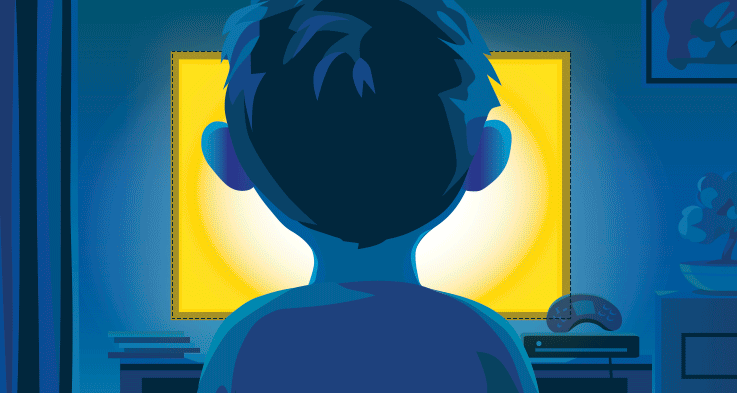Guidelines recommend those under two years should have zero screen time, but new data reveals a different reality
Despite national health recommendations, more than half of all Australian parents allow their young children to play for hours on phones, tablets and computers, researchers say.
The mean recreational screen time for a 12-month-old child was 50 minutes a day, increasing to more than 90 minutes by the time the child was two, researchers said in a recent issue of the Medical Journal of Australia.
The study analysed the leisure screen time data of almost 6,000 children taken from the Australian Longitudinal Study on Women’s Health.
Department of Health guidelines recommend that children under two years have zero screen time, while two to five-year-olds should have a limit of one hour a day and five to 17-year-olds should have a maximum of two hours of recreational screen time.
After publication, the guidelines, titled “For Healthy Growth and Development of Your Child”, were criticised for being based on studies which looked at the role of sleep and physical activity, but had little-to-no evidence for any harm accrued from the actual screen time.
Associate Professor Leigh Tooth
“There needs to be more research to establish the potential harms of screen use for very young children.”
However since the guidelines were published, a longitudinal study in JAMA Paediatrics found that prolonged screen time, in combination with reduced sleep and a lack of physical activity, could have an effect on children’s developmental milestones.
This argument was echoed by the study authors, who said excessive screen time on weekends among children of all ages was known to reduce their active play time, with implications for health.
“The rapid uptake of screens by children before their third birthday is of particular concern because greater screen time increases the risk of poorer developmental outcomes,” the study authors said. Associate Professor Leigh Tooth, lead author and principal research fellow at the School of Public Health at the University of Queensland, said she was shocked that 66% of children under the age of one year were non-compliant with the guidelines.
“There needs to be more research to establish the potential harms of screen use for very young children, as should strategies for helping parents manage how much screen time their children have from early infancy onwards,” she said.
Professor Tooth suggested that health professionals could discuss the guidelines when they encountered women and their partners during pregnancy or after the birth, if they felt it was appropriate. “As always, the technology is far beyond where the research is,” she said.
Perhaps unsurprisingly, mean daily screen time was consistently longer on weekends and steadily increased with age.
Conversely the amount of time spent on screens on week days plateaued when children reached three years of age or older.
The study authors attributed this decline to when children were beginning pre-school or primary school (when a majority of screen time became educational).


